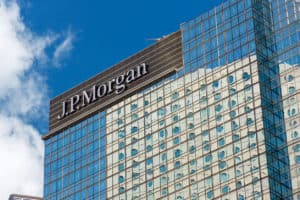 JP Morgan has noted a surge in client use of adaptive forex algorithms at the height of the market volatility seen in March, according to a client report from the investment bank’s FX eCommerce team seen by The TRADE.
JP Morgan has noted a surge in client use of adaptive forex algorithms at the height of the market volatility seen in March, according to a client report from the investment bank’s FX eCommerce team seen by The TRADE.
The report stated that with the recent volatile market conditions, clients have increased their use of adaptive algo orders versus limit-based strategies, which JP Morgan said was a ‘noteworthy change in client behaviour’ when compared to other major liquidity events such as Brexit and the 2016 US election.
A breakdown of order types by liquidity events in the report revealed that during the Brexit and US election liquidity events in 2016, roughly 30% of algo order types were adaptive and 60% were limit-based. However, during the coronavirus liquidity event in March, JP Morgan said adaptive order types surged to around 50% of algo order types, while limit-based orders declined to around 20%.
Adaptive orders exhibit modified behaviour based on market structure variables such as volumes, market impact, bid/offer spreads. Traders can use adaptive algo order types to buy different amounts at varying time intervals based on estimated activity, essentially meaning it adapts to market conditions. On the other hand, non-adaptive algos such as limit-based orders, fill orders based on a fixed time interval or a specified limit price.
FX markets saw huge volatility in March due to the coronavirus pandemic, which resulted in widened bid-offer spreads not seen since the global financial crisis, and a decline in market depth even in currency pairs considered to be liquid.
The increased challenge of targeting specific price, an increased market impact risk, an increased client comfort in adaptive algo logic, and a decrease in concerns related to time risk were listed by JP Morgan as contributing factors in why adaptive orders have become more widely-used than limit-based orders.
JP Morgan added in its client report that clients generally chose algo execution over risk transfer for tickets with a notional size of more than $10 million during the period, with around 60% of the bank’s FX order tickets of that size traded via an algorithm.
Last year, JP Morgan moved to deploy machine learning technology to its forex algorithms, as the institution launched a Deep Neural Network for Algo Execution (DNA) tool to bundle existing algos into a single execution strategy.